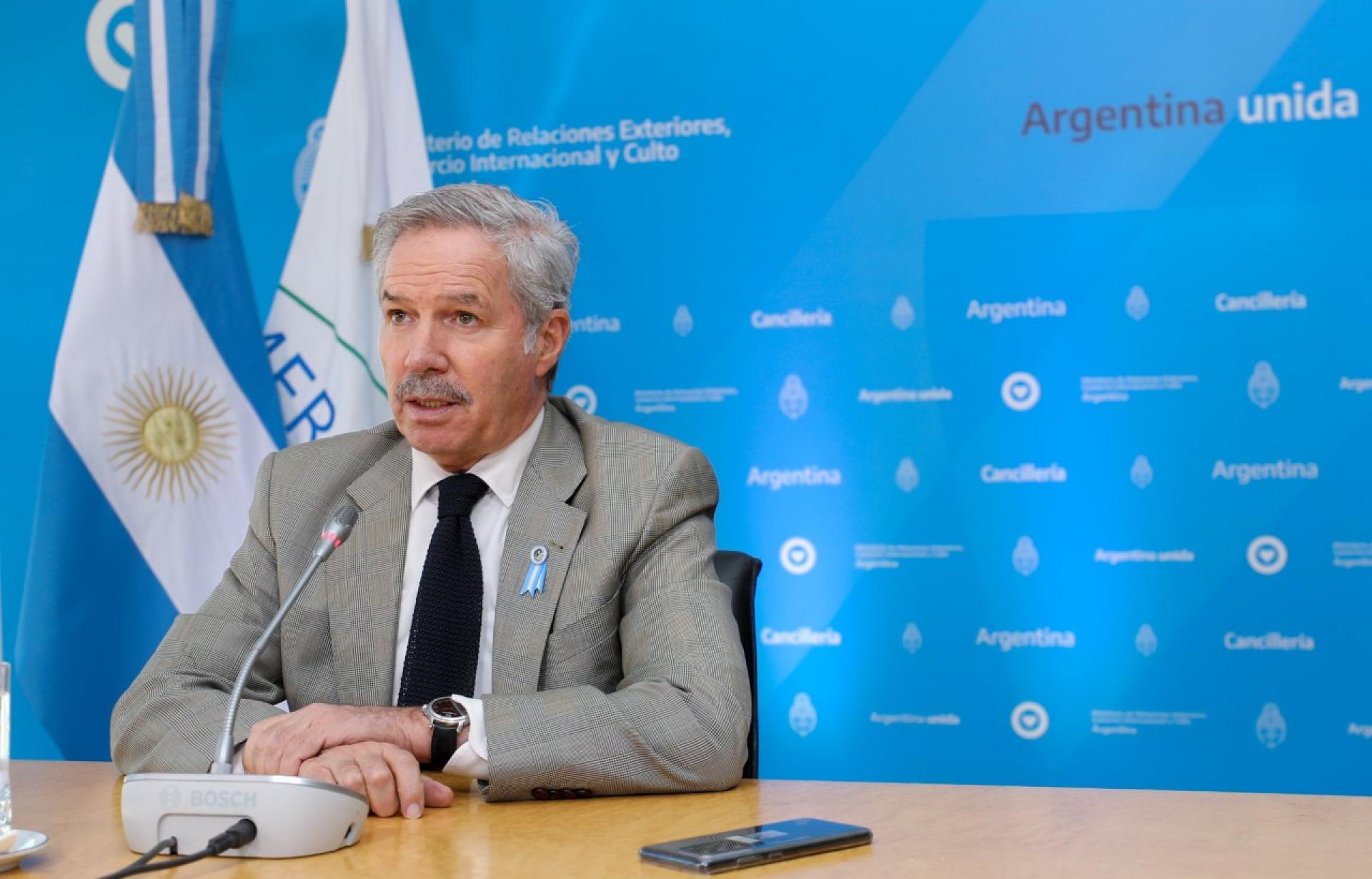Today, Foreign Minister Felipe Solá and the head of the Argentine Comptroller General’s Office (SIGEN), Carlos Montero, headed the opening of the 16th Mercosur Specialized Meeting of Governmental Internal Control Agencies (REOGCI), aimed at advancing a common agenda and unifying regional criteria to strengthen and improve the governmental internal control of the bloc’s Member States.
Addressing authorities, experts and officials of control agencies of Brazil, Paraguay, Uruguay, Bolivia, Colombia, Ecuador and Peru, Solá noted that within Mercosur “there are valuable examples of the search for more effective and transparent public management,” such as the Gender Policies Observatory, presented during the meeting, “where all Member States build consensus and work together.”
“We prioritize and are committed to developing public policies aimed at promoting equal opportunities and gender mainstreaming. Both matters require special control,” he detailed.
Solá stated that “for Argentina, the Comptroller General’s Office is an agency of great importance for the control of government actions. It must be a truly independent agency, and this must happen in every country of the bloc, without political circumstances altering the objectives of these agencies.”
The Foreign Minister called on the Member States to “consolidate common objectives among the comptroller’s agencies of the different countries,” and to strive for more transparent and effective Mercosur organs, “particularly in such difficult times due to the pandemic and its social and economic consequences.” He also recalled “the achievement of codifying citizens’ rights and benefits in the Mercosur Citizenship Statute, on the 30th anniversary of the signing of the Treaty of Asuncion.”
The REOGCI is aimed at building scientific, technical and operational cooperation relations in the areas of governmental internal control; harmonizing professional performance rules; fostering the exchange of information, experiences and professional and technical development; and promoting joint research projects.


